If you’ve been unlucky enough to be pulled over by a cop, you may have noticed them do something strange…tapping your tail light. Now, you may get nervous when a police officer begins to touch your vehicle, they also seem to take their time when it comes to writing you a ticket.
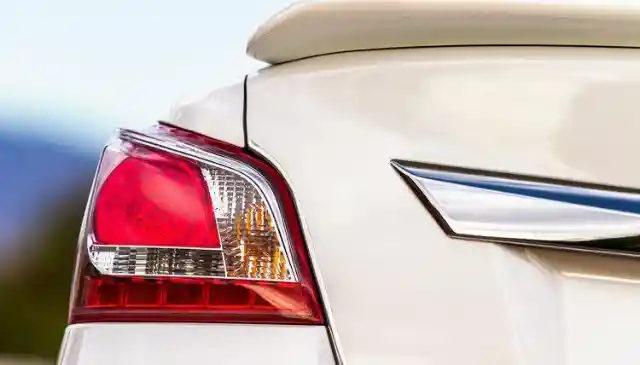
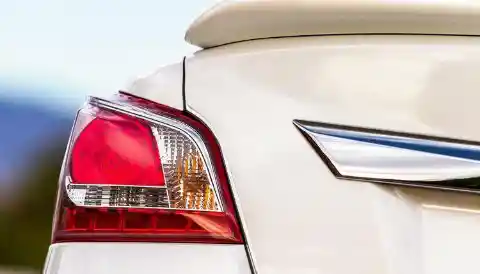
However, there’s a reason behind it all we promise. When it comes to the infamous tail light tapping, there’s a very extensive history behind it.
The act actually goes back to the early days when police officers first began patrolling the streets and highways. Tail light tapping was used more prior to the age of dash cams.
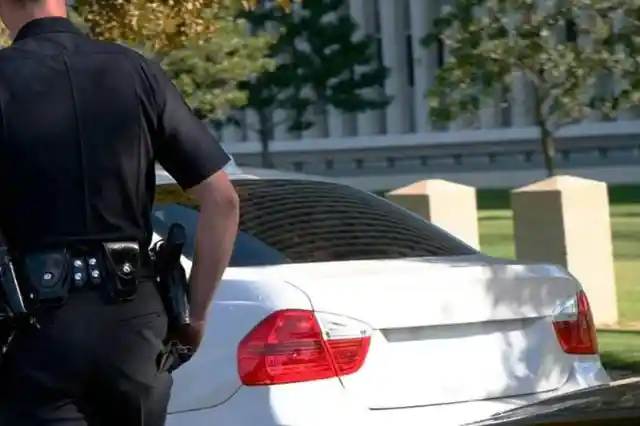
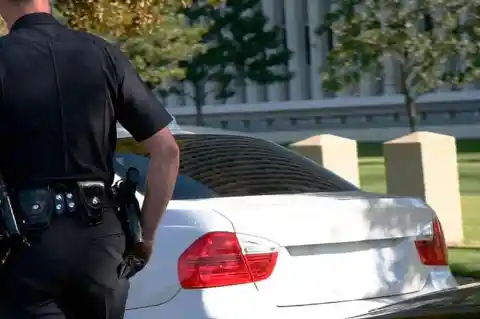
Cops began doing this because they wanted to catch the driver or passenger off guard. But there’s more to it than we thought!
Let’s say you were speeding and the police officer pulls you over to warn you or give you a ticket. The first thing before he reaches you is tapping on the back of your car, probably on the tail light.
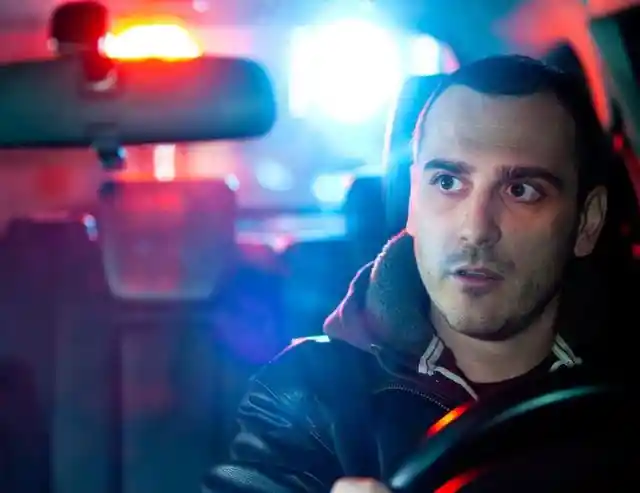
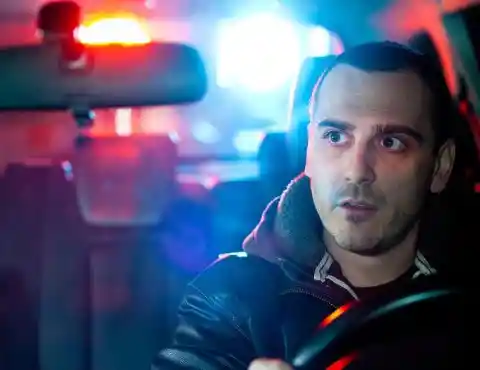
You’ve seen or heard it before, but did you know the gesture is used for far more reasons than scaring the driver.
Many times when people are pulled over, they try to hide illegal contraband or drugs before the cop reaches the window. When the officer tapped on the tail light, the hope was it would startle the passengers in the vehicle and they would be caught red handed.
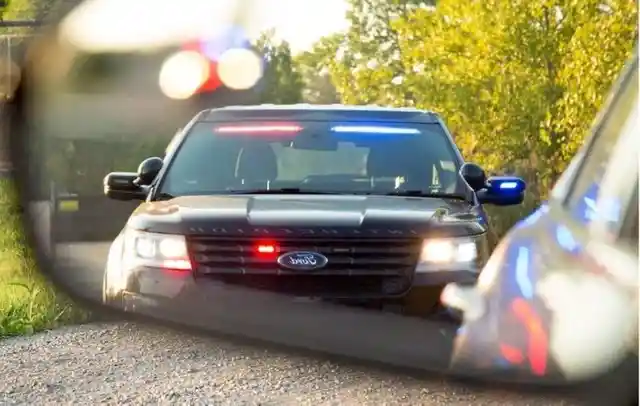
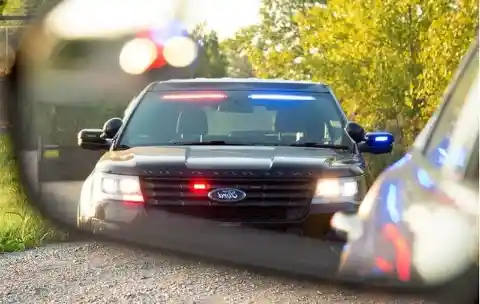
Pretty sneaky right?
With the driver startled, it was easier for the cop to make an arrest and confiscate anything that was illegal. Are you ready to have your mind blown?
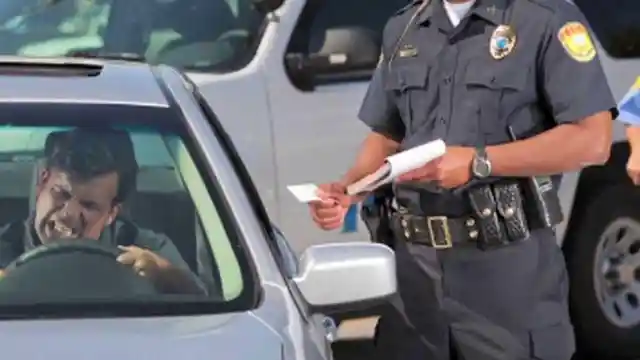
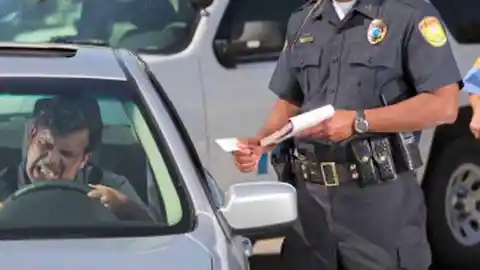
Another reason the police tap your tail light is to leave evidence that they were there.
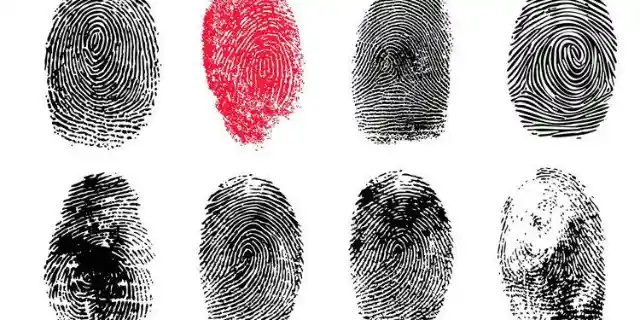
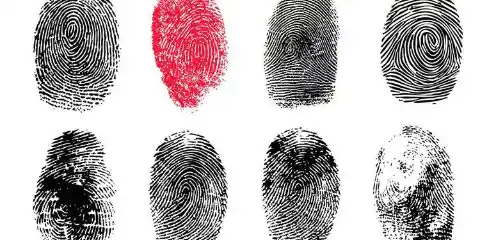
“Leaving a thumb print on the brake light is an old-school way to tag a car with a fingerprint, so it can be identified conclusively as the vehicle involved in a stop should the officer become incapacitated,” explained criminal defense attorney and DWI/DUI lawyer Joe Hoelscher in an interview.
Come to think about it, that’s pretty neat! But that’s not the only sign cops use to talk to each other, so here’s why you should also wipe those taillights, or else the next cop that will stop you that day will be a lot more aggressive.
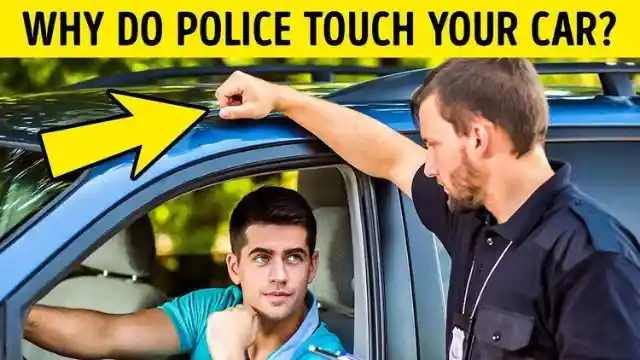
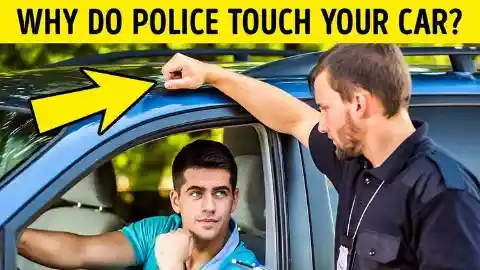
Here’s how they know you’ve recently been in trouble…
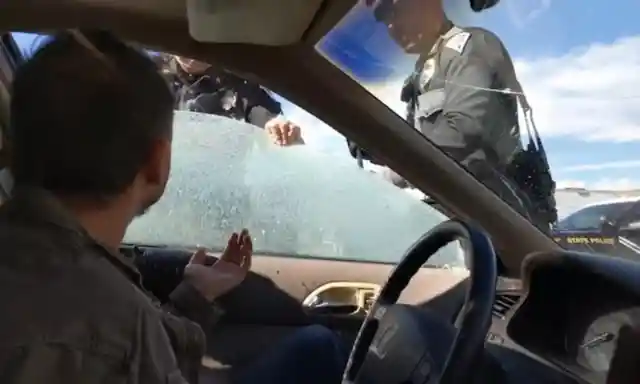
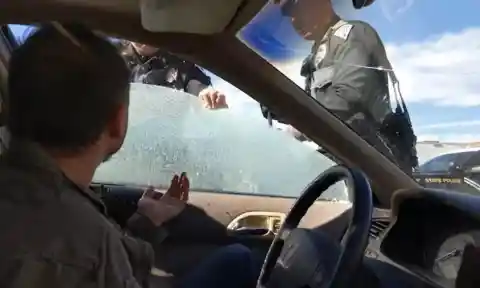
Hoelscher explains that if the tail lights are dusty and your car has already been pulled over by a cop, you should wipe the tail lights after that because the fingerprints will stand out and “the next officer might be more aggressive realizing you’ve had another law enforcement interaction recently.” Just to be sure, wash the car after you got stopped!
You never know if a driver is completely twisted and out of their mind and might try to get away with murder. Let’s just say the officer approaches the vehicle and is shot or even worse… killed… their fingerprints are now on the car.
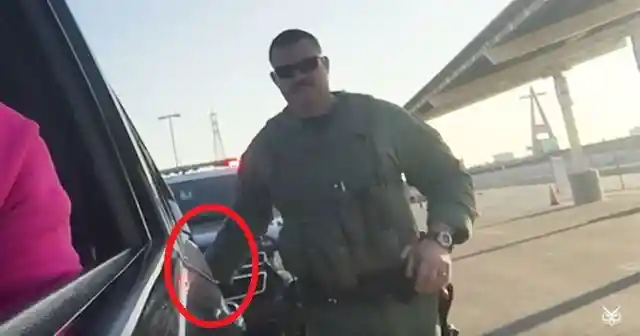
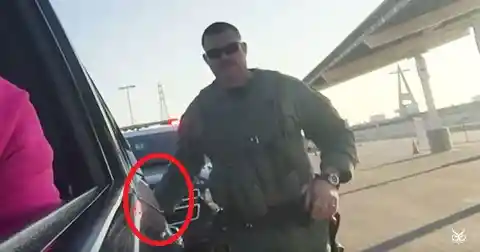
Crazy, right?
We had no idea this was something that officers did, but it allows an investigation to find whoever was responsible for the incident.
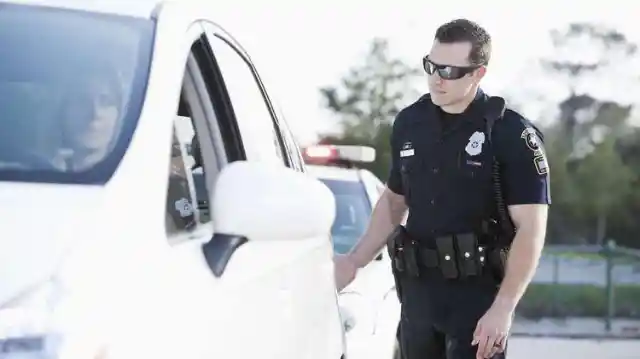
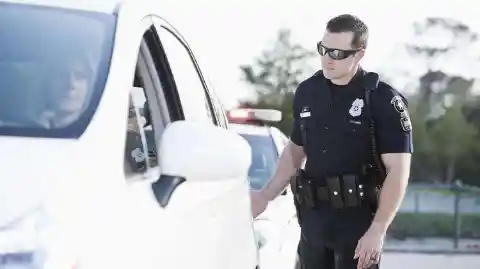
Thankfully, with the installation of dash cams on officer vehicles, there really is no need for tail tapping anymore.
Of course, some police officers still do it, but it’s completely unnecessary. We’re guessing some old habits are just too tough to shake.
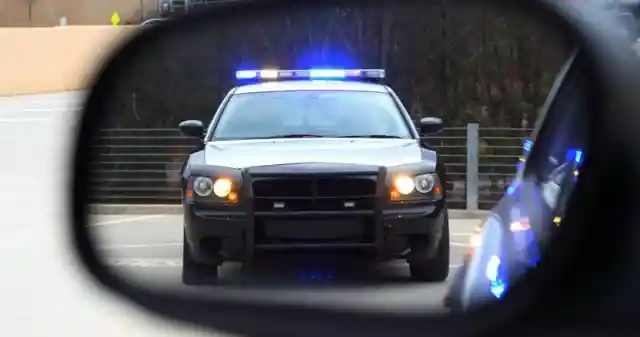
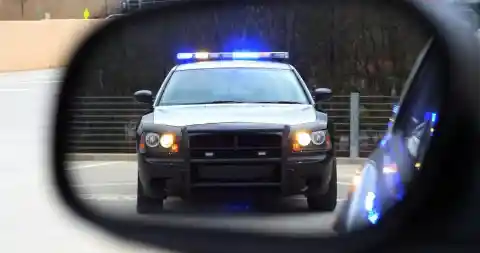
Sometimes tail tapping can actually be dangerous for the police officer. Why?
Well, it alerts the driver to the officer’s exact location. If they happened to be a criminal, the cop’s life could be on the line, especially if it’s dark.
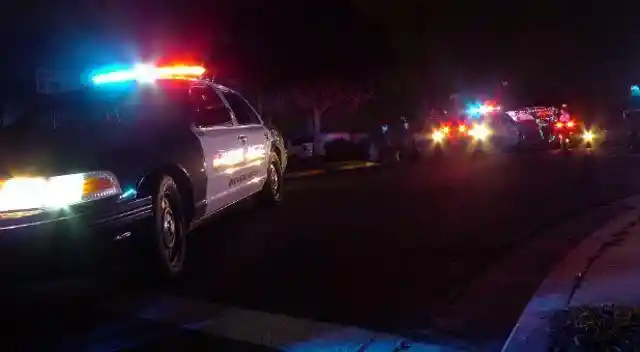
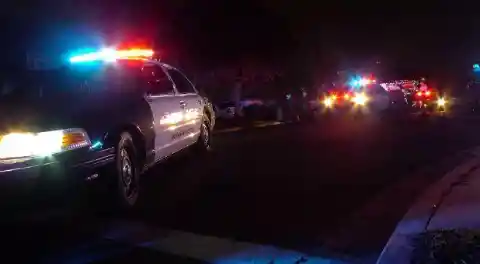
With the violence against police officers at an all-time high, many police departments are asking their officers to stop tail light tapping completely.
There is absolutely no need to give the driver (especially a crooked one) an advantage over the officer as they approach them. However, some officers just can’t let it go.
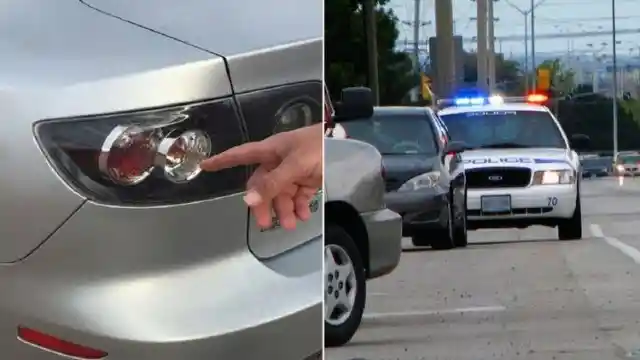
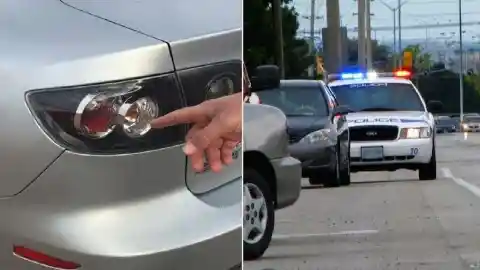
As we’ve mentioned before, there really is no need for tail light tapping anymore, but some police officers consider it a rite of passage.
They feel it’s a way to honor the officers that came before them. So, they continue to do it.
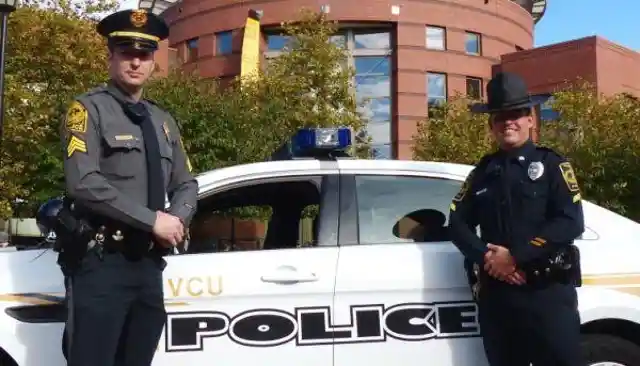
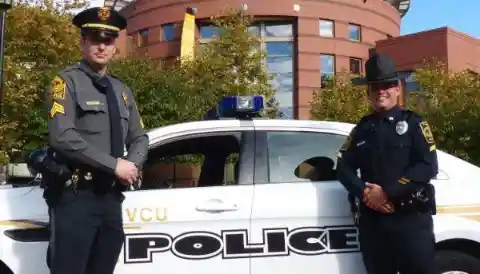
Some police officers still believe that the tail light tapping is efficient during routine stops.
They claim it has increased their arrest numbers of intoxicated drivers, drug dealers, and those with unlicensed firearms. Interesting, right?
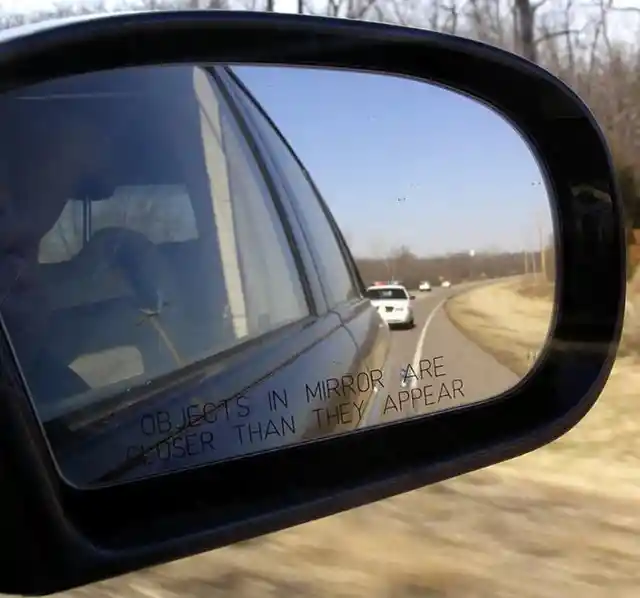
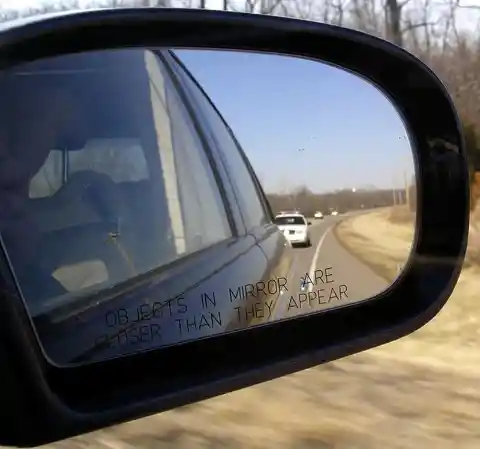
Some drivers think they’re pretty crafty and will speed off before the officer can write them a ticket. A stupid move that’s for sure.
However, if the officer has tapped their tail light, they can easily identify the car that sped away if they happen to come across two cars that look identical.
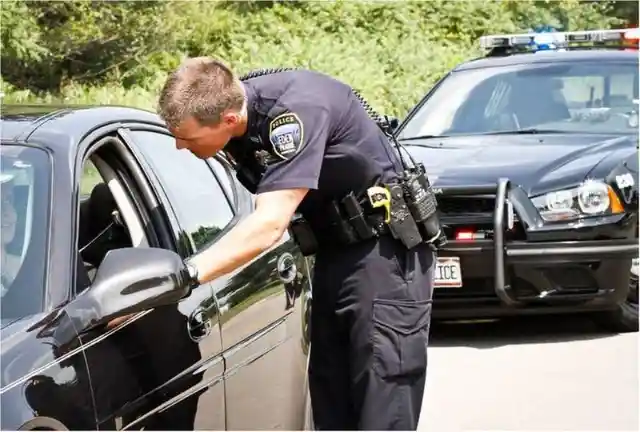
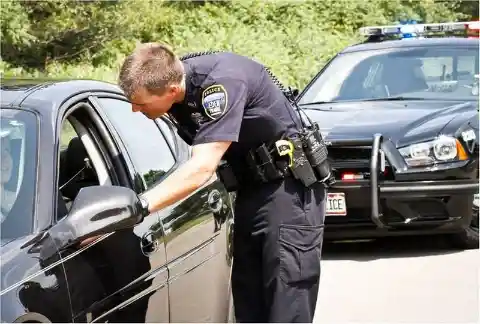
Some officers not only tap the tail light, but they push down on the trunk lid as well.
No, they aren’t trying to create new dents in your car, they are just checking to make sure no one pops out of the trunk in an ambush. Yes, this actually happens.
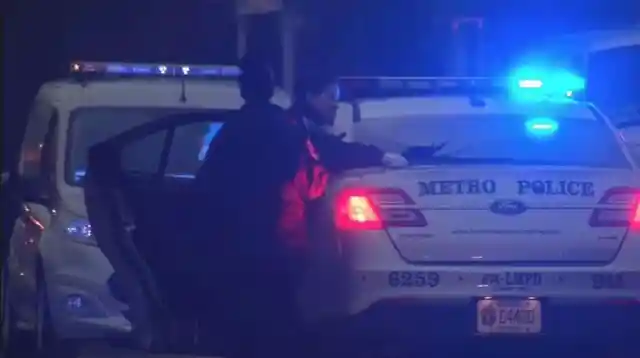
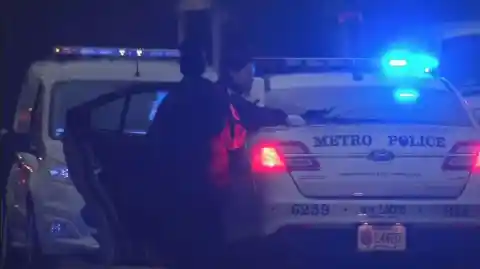
Some police officers patrol with partners and utilize trunk tapping and tail light tapping to check what the driver may or may not have in their lap.
While one officer taps on the trunk, the other officer will check out the driver while they are momentarily distracted.
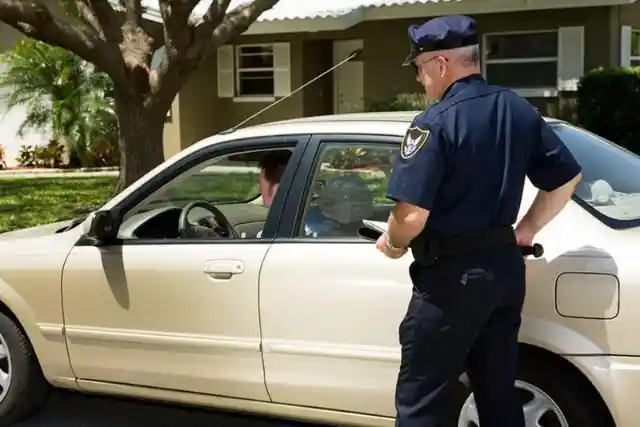
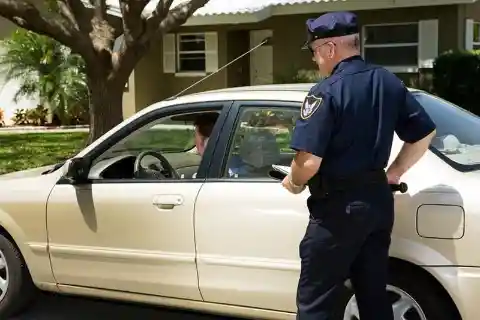
The practice of tail light and trunk tapping was originally implemented back in the 1960s and 70s.
During this time, radical crime groups patrolled the streets and would ambush officers when pulled over. Thankfully, trunks are designed a bit differently today and popping out of them isn’t so easy.
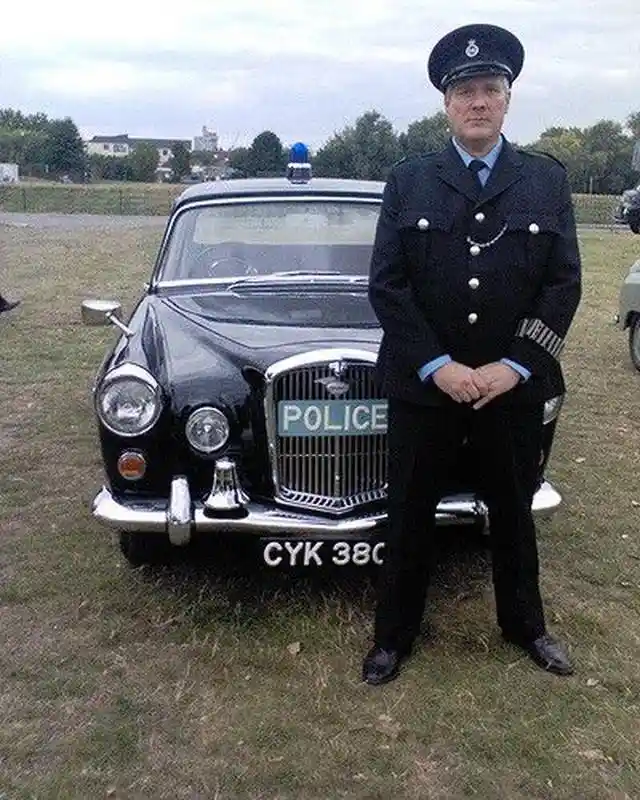
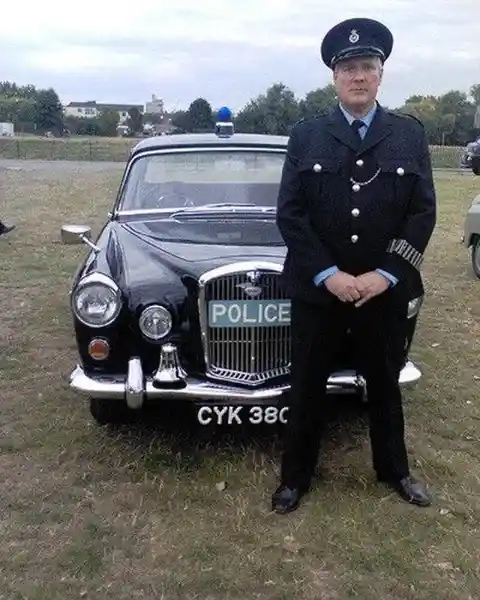
Today, police academy instructors do not promote the practice of trunk tapping or tail light tapping.
They suggest officers not only not touch the rear of the vehicle, but they should remain away from it is as well. This is just in case the driver decides to back up and run over the police officer.
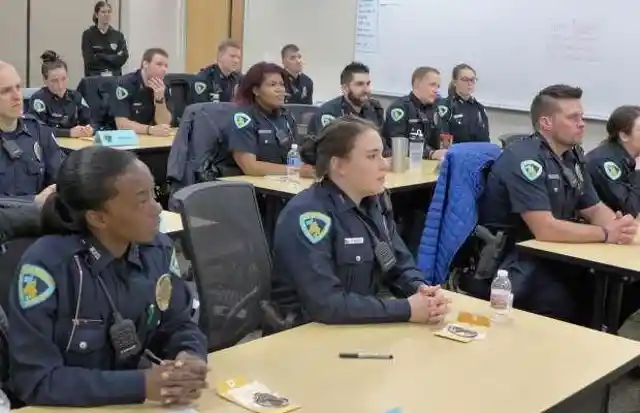
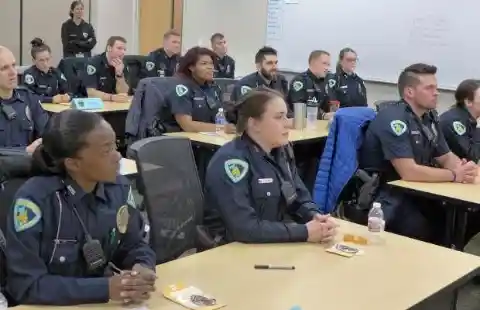
Some police officers tap tail lights to give them some time to check the backseat. You never know who might be hiding back there or what illegal items may be stashed away.
By tapping the tail light, they can act like they’re performing a routine procedure, rather than snooping around the driver’s car.
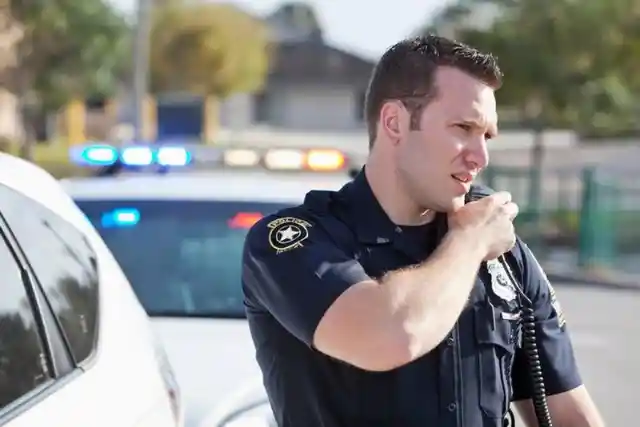
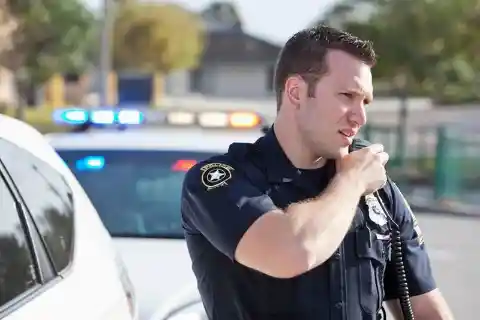
While not as serious as being shot at, tail light tapping can run the risk of making the officer’s uniform dirty.
Since they are required to hug the vehicle with the side of their body as they tap the tail light, it can allow whatever is on the car to rub off on them.
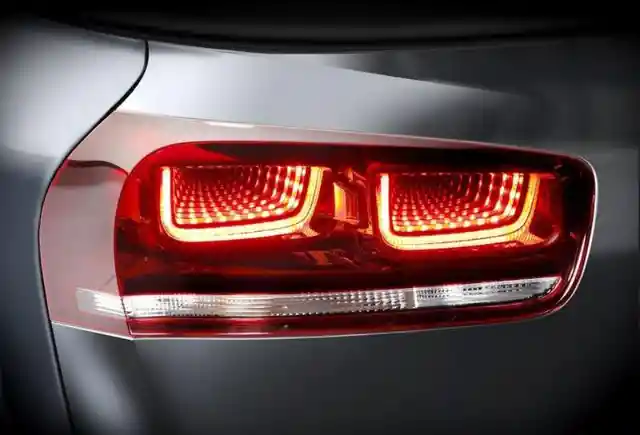
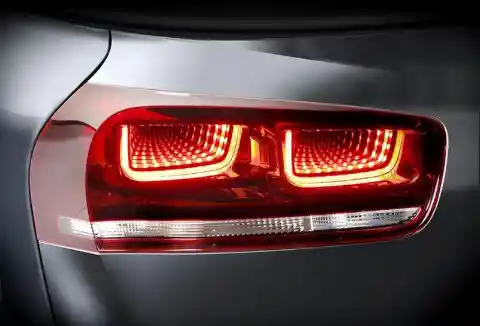
Most people have thought that tapping the tail light was the cop trying to see if it was working.
Heck, we’ve been pulled over at times only to be alerted we had a tail light out and never even knew it. It seems this practice really should go away because it’s not only confusing but apparently super dangerous.
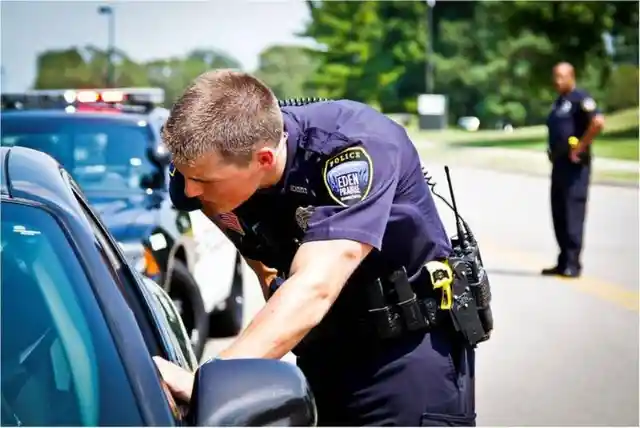
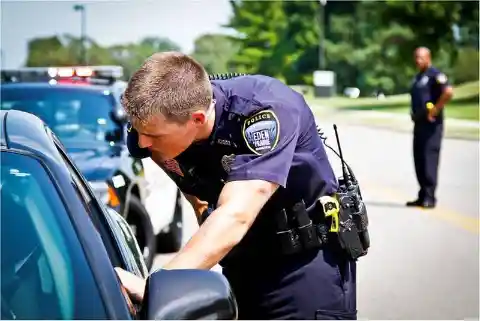
So, the next time you’re pulled over and a police officer taps your tail light…don’t freak out! It’s just a simple and standard procedure.
Also, please don’t keep illegal stuff in your vehicle, you will have a lot more to worry about than some simple tail light tapping. There are also more things you should look out for when a cop pulls you over, some as simple as tail light tapping and others you wouldn’t expect.
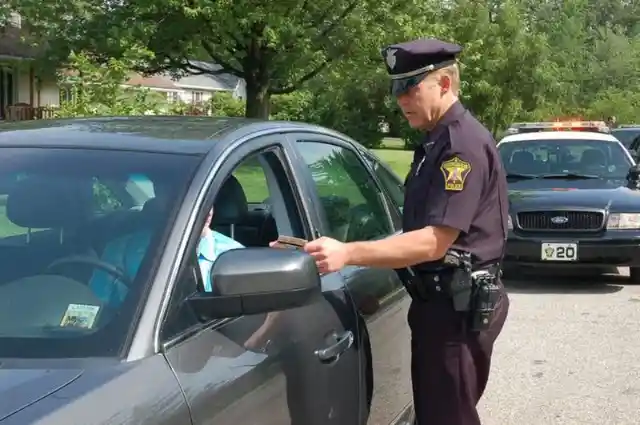
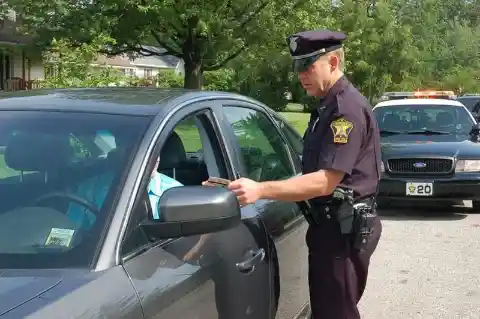
Such as the next ones…
There are many other things that officers do to keep themselves safe during a traffic stop. A lot of them are strategic and sometimes, you don’t even know why they’re doing it.
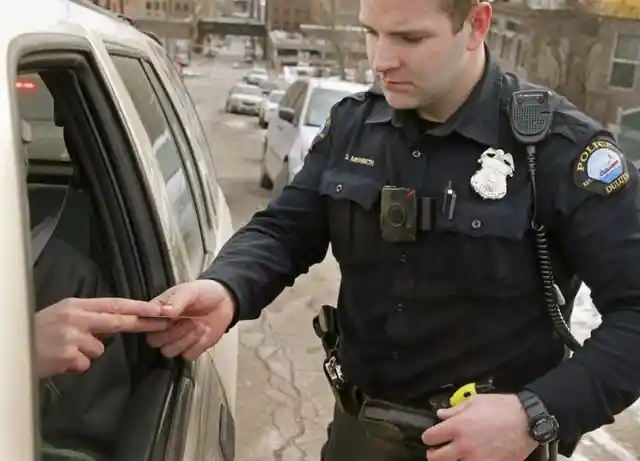
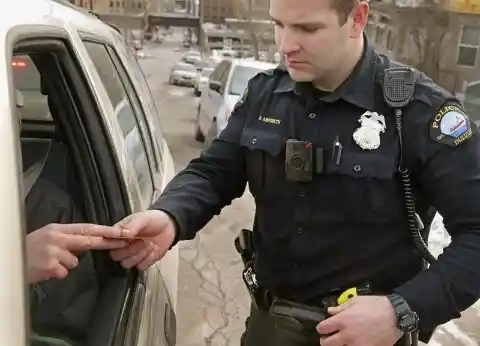
This helps them turn everything to their favor and stay safe while accomplishing their mission.
Tapping tail lights isn’t the only way officers make sure the stop will go in their favor. In fact, there are many things cops do to try and catch people in the act, and a lot of them are surprising.
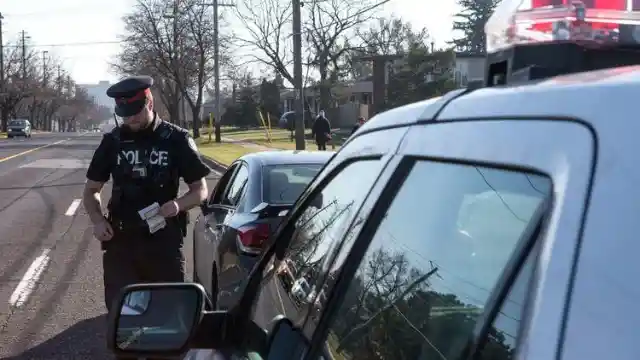
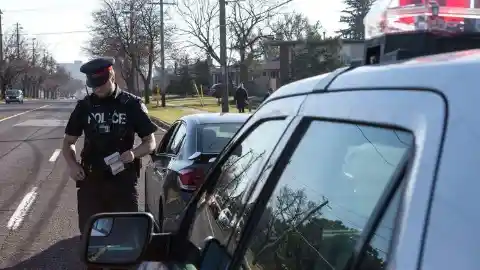
Officers, whether alone or with a partner, have figured out many ways to keep themselves one step ahead of the person they’re pulling over. They will always keep their cars running to ensure that if the suspect has fled, they can pursue them in a timely fashion.
They even leave their doors open so they can access their radios in case of an emergency. What this means for you? It’s an indication of what they’re thinking about–they’re assuming you’re armed and dangerous.
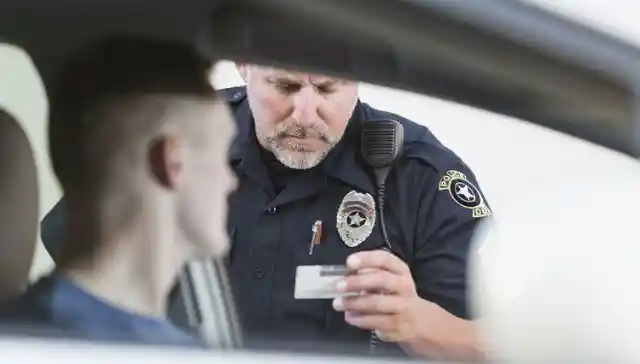
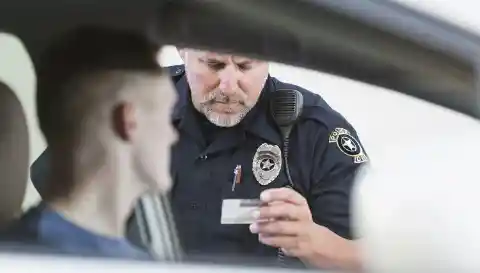
If their are two officers during a traffic stop, one will go to either sides of the vehicle to ensure they have eyes where necessary. They will almost always shine their flashlight into all windows, not to be rude as many people believe, but to see everyone and everything that is in the vehicle for their own safety.
However, many times, they’ll come off as abrasive and down right rude because they’re feeling you out and checking for signs that you’re nervous about something.
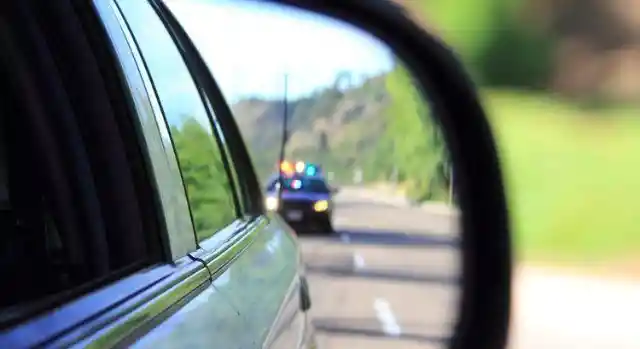
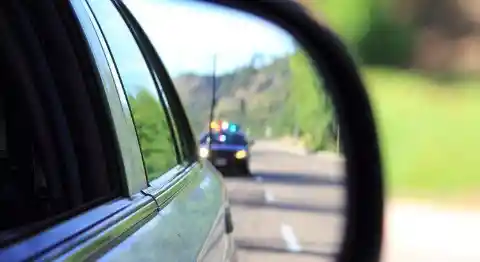
A lot of the time when people are speeding and they see a cop ahead of them, they’ll slam on the brakes.
It may seem like a good idea, but in actuality they can see your front end dip, letting them know you’re drastically slowing down, aka, you were speeding. If you can, always stay under 10 MPH over the speed limit and if you are speeding, slow down gradually.
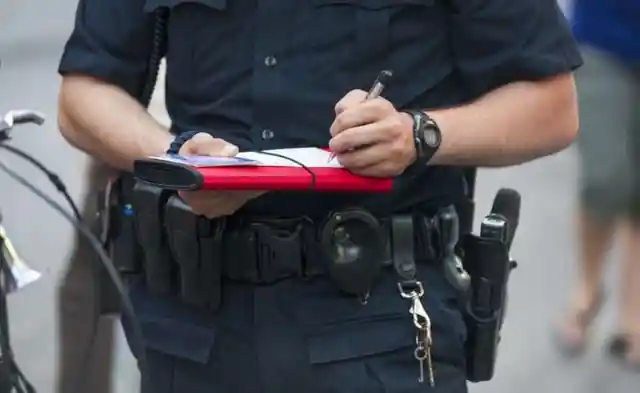
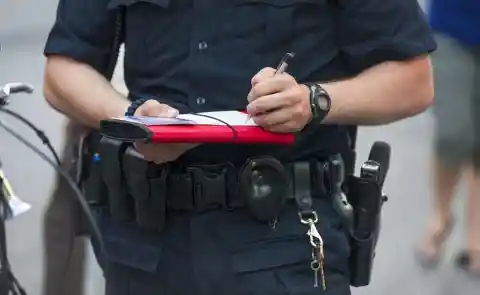
Any change in behavior will alert them that you’re doing something illegal. Cops are more likely to pull over a car full of four young men because on average, most crimes are committed by young males.
If you are riding deep, it can help to have one of your passengers wearing a item of clothing that represents what you guys are doing or what you do for a living–like a construction jacket if you’re all carpooling home from a job. If you’re all just hanging out, the only thing you can do is don’t ride dirty and you shouldn’t have a problem.
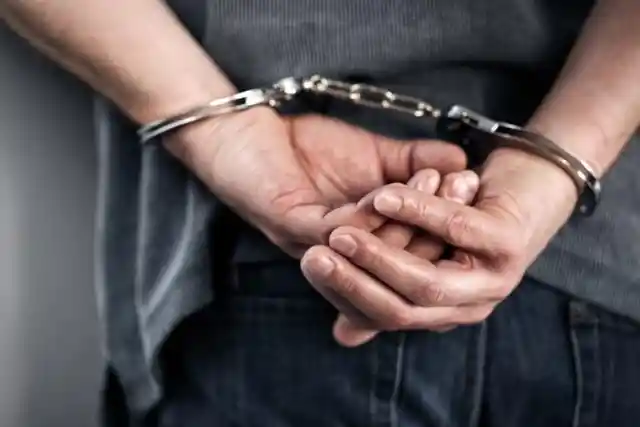
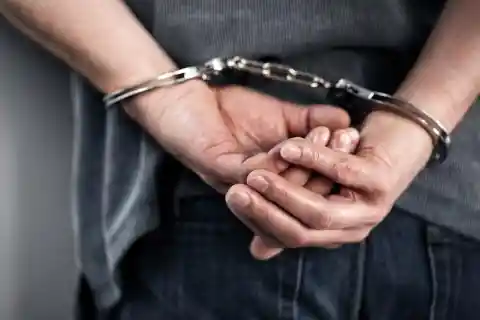
At the end of the day, cops are just regular people trying to keep themselves and citizens safe. So if you don’t want to get into trouble, don’t have an attitude or be aggressive.
Dale Carson an ex police officer for the Miami Dade County police department and alumni for the FBI says that cops are more likely to write you a ticket if you’re unnecessarily difficult, and chances are they’re going to be rude in the process–just don’t react. He’s now a defense attorney in Florida, sharing some scary insider info with people on the reality of what police are thinking about. “The ranks of cops are young and competitive, they’re in competition with one another and intra-departmentally.
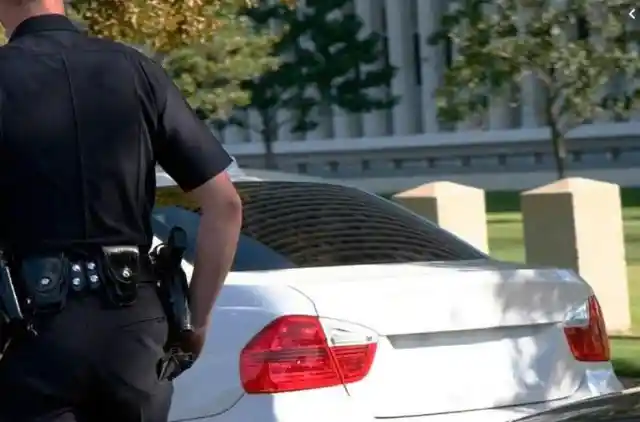
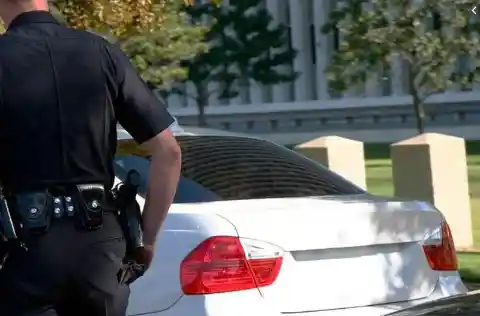
It becomes a game. Policing isn’t about keeping streets safe, it’s about statistical success. The question for them is, Who can put the most people in jail?” he says.
This is why it can seem that so many cops are bossy, aggressive, and insulting when questioning you during a traffic stop. They want you to react in a way that would allow them to arrest you or at the very least write you a ticket. Luckily, if you keep cool and don’t let them annoy you into mouthing off, you can be on your merry way.
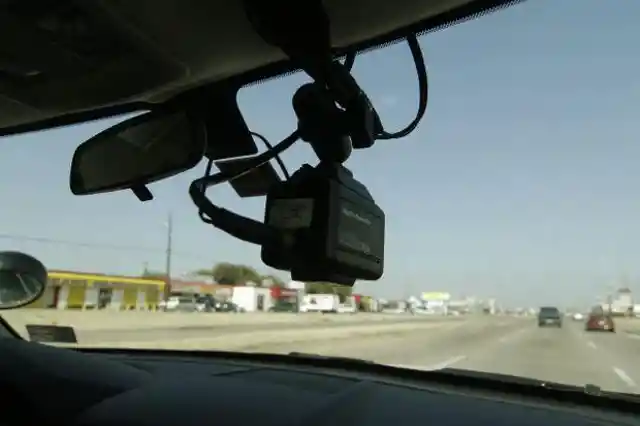
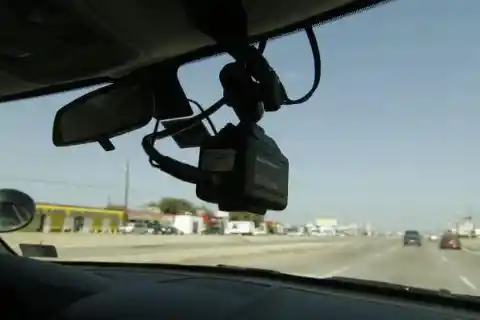
Carson also states that the best thing you can do to avoid being arrested or ticketed, is to be invisible to the police. You can do this by driving a non-flashy car like a Honda Civic. Don’t drastically lower your car or tint the windows because this will make you more visible.
Also, if you’re going to be doing something illegal, do it at home where you’re way less likely to be caught.
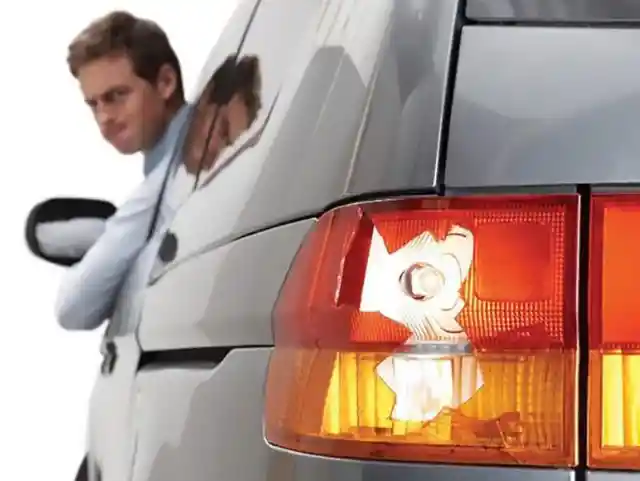
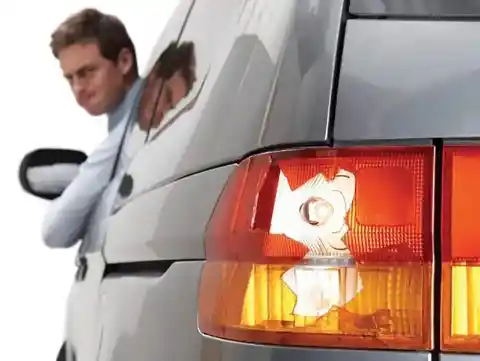
Carson calls this the golden rule,”If police can’t see you, they can’t arrest you.” Carson also says that there are two things that cops are fighting for during an interaction, “psychological dominance and custody of your body.” He says they’re going to try and be dominant but there are times you should give in, in order to win war not the battle.
“Being questioned by police is insulting,” Carson states, “It is, however, less insulting than being arrested. What I’m advising you to do when questioned by police is pocket the insult.
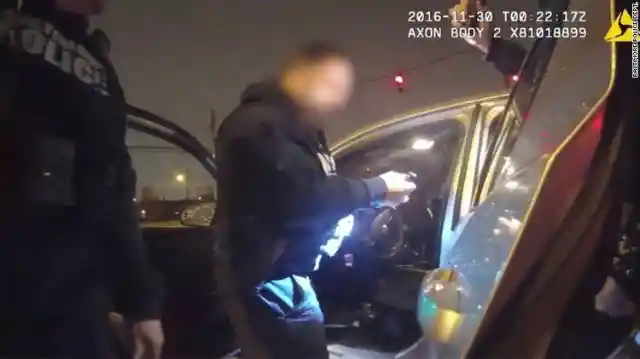
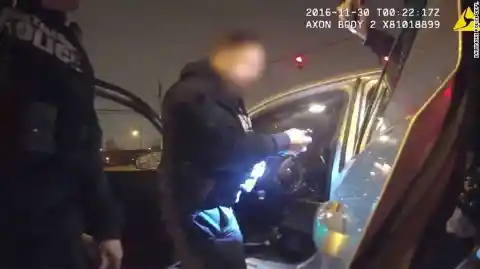
This is difficult and emotionally painful.” Surprisingly, he says you should always tell the truth when interacting with cops. They’re trained to sniff out lies, and in all honestly, it’s not hard to tell when someone is lying.
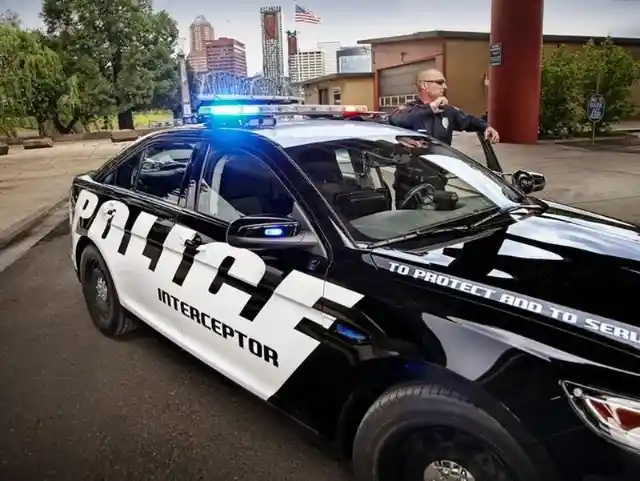
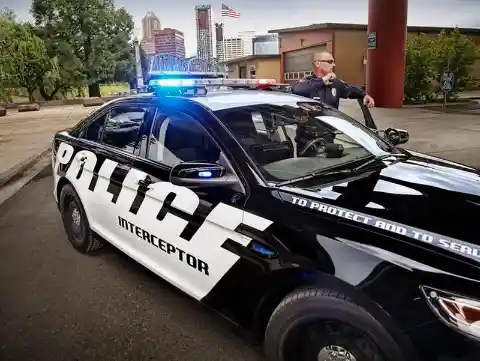
He also says, while being honest and straightforward with cops, you shouldn’t smile,”Cops don’t like smiles.” Be dignified, unless it’s not going in your favor, then the best thing to do is to be submissive and beg, asking for alternatives to being arrested like a notice to appear.